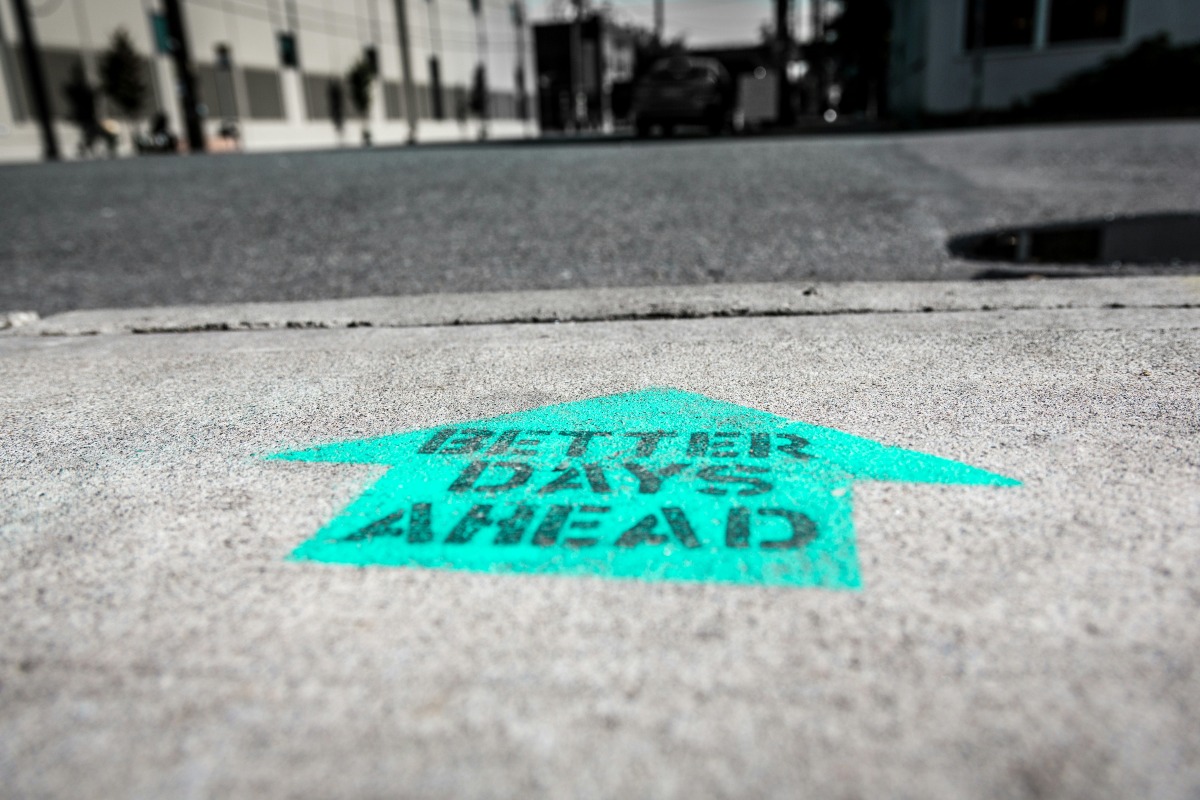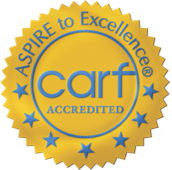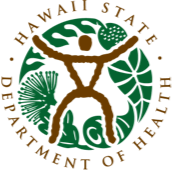Thanksgiving can be a time of family and celebration, taking a day to connect with loved ones and enjoy the togetherness of the holiday. However, for those navigating addiction and recovery, Thanksgiving can instead present many challenges. Committing to a sober Thanksgiving holiday demands change and support to address both how the effects of addiction continue to impact daily life and how they have affected family members and loved ones. Working to create a sober Thanksgiving holiday can also be an amazing opportunity to further the efforts of individuals and their families in sobriety, becoming a tool to explore new positive changes for a sober life.
The Stresses of the Thanksgiving Holiday
Each person overcoming addiction will have a challenging journey, and overcoming daily changes is part of a truly effective and sustainable sober transformation. However, holidays can present additional challenges that can be difficult to navigate, especially if this is the first Thanksgiving holiday since committing to treatment and a sober lifestyle.
It is completely normal to experience stress during this time. However, knowing the challenges ahead can empower each person to prepare for these stresses more effectively. While Thanksgiving can be difficult, it is always possible to transform the Thanksgiving holiday into something that reflects each person’s present healing, progress, and current relationships with loved ones.
Past Expectations, Celebrations, and Traditions
How the Thanksgiving holiday is celebrated will vary from family to family, and each person and their friends and loved ones may have unique traditions when celebrating the day. However, some of these traditions may center around the use of drugs or alcohol. Even in sobriety, the close associations that the day can have with substance use can bring intense urges and cravings. A person may subconsciously harbor expectations surrounding substance use, and Thanksgiving celebrations may even seem intimately tied to their use. These cravings can be intense as the body and mind are programmed to expect to use drugs or alcohol, which can cause stress, anxiety, and other challenges this Thanksgiving.
While this is especially challenging for those who are just beginning their sober journey and are celebrating their first sober Thanksgiving, this can still be challenging even for those who have navigated a sober Thanksgiving before. This is a stressful time, and even those who are successfully managing their sober lives can still feel the stresses of the holiday.
Misunderstandings About Addiction and Recovery
While unfortunate, not all people in a person’s family may understand the complexities and nuance of a disease like addiction, nor the challenges of the recovery process. Those successfully creating a new, sober life can still experience a great deal of stress this Thanksgiving holiday due to misunderstandings about their journey and experiences. Family members may erroneously believe that because a person went to a professional inpatient alcohol treatment or drug treatment facility like Hawaii Island Recovery, then they are “cured” of addiction, unaware of the constant work and effort it takes to maintain a healthy, sober life.
Other family members may believe that addiction is “cured” and may engage with these substances themselves without thinking of the impact that it could have on a sober individual. Some may also bring up past mistakes and can coat the holiday with a feeling of guilt and shame due to past use of drugs or alcohol that can affect the atmosphere of the entire holiday. Misunderstandings about addiction and recovery can also lead to people feeling unfairly judged by their past mistakes or recovery efforts, leading to further feelings of stress, doubt, anxiety, and much more.
Family Stress During the Thanksgiving Holiday
Regardless of a person’s history with addictive substances, some families getting together on Thanksgiving can just have a difficult atmosphere. Whether certain family members have a history of getting into arguments or not seeing eye-to-eye on certain issues, this stress is very real. This can lead to not just feelings of social anxiety but anxiety and dread in general heading into the holiday celebration. Such stress can further impact urges, cravings, and more this Thanksgiving holiday.
Feeling Isolated
Because of the changes in lifestyle, expectations, and traditions, it is normal to feel isolated during the holidays, and Thanksgiving is no different. Varying levels of education and acceptance surrounding a person’s sober lifestyle and history with addiction, and a desire to distance from past routines or traditions, can cause many of those in sobriety to feel disconnected from friends, family members, and loved ones who may want to engage in the Thanksgiving holiday the way they always have. Those wanting to celebrate this holiday season in a new way can find it difficult and may feel left out due to these changes.
Managing Stress This Thanksgiving Holiday
Simply planning holiday festivities and hosting guests can be stressful on its own, and some may feel overwhelmed if they are both trying to manage their sobriety while also planning out a festive feast, entertainment, and more for guests. It is normal to feel overwhelmed during this time, having to be both host for the festivities and make time to focus on the self.
Compromised Self-Care
The hustle of the holidays can also come at the expense of a person’s self-care outlets. Some may be so busy preparing for the holiday festivities that they can neglect regular self-care outlets and routines. Others may feel that they cannot effectively engage in self-care outlets while guests are present, either due to compromised time, space, or a need to tend to host duties. This lack of self-care, alongside the additional stresses commonplace during the Thanksgiving holiday, can accentuate feelings of stress, anxiety, urges, and cravings, creating a difficult holiday for those in recovery.
Creating a Plan for a Sober Thanksgiving Holiday
The holidays can be exceptionally stressful for anybody, and even more so for those balancing their sober lives with the festivities of the season. However, approaching Thanksgiving with a plan prioritizing sobriety and personal health that still fulfills the holiday spirit is always possible. Finding the right plan and leaning on the support from friends, family members, loved ones, peers, and professionals at Hawaii Island Recovery is instrumental when transforming the Thanksgiving holiday into something that celebrates sobriety and progress with those who matter most.
There Will Be Change
Each stage of the recovery process is wrought with change. Effective recovery isn’t just about learning to stop using drugs or alcohol but is, instead, an entirely transformative journey that impacts every aspect of daily life. Personal life, physical healing, spiritual healing, and emotional wellness are all part of an effective healing journey.
However, this means that the holidays will also be filled with change. Continuing to celebrate holidays with previous traditions and expectations can not just bring up memories of past use and potentially cause an individual to romanticize their use of addictive substances; it can be easy to fall into previous routines. Before making plans, meeting with family members and support to establish that this year will be different and that change is a part of the holiday season can ensure that loved ones are ready to amend their expectations.
This can be especially important if an individual is hosting a sober Thanksgiving holiday themselves and inviting family members who may not fully understand the complexities of their sober journey. Making expectations clear and stating that it will be a different approach to the holiday can help empower family members and guests to be more open to the potential changes in festivities.
Make It a Sober Thanksgiving Holiday
Embracing change also means making clear that the Thanksgiving holiday will be celebrated without drugs or alcohol. Stating this clearly for family members and guests can prevent them from bringing these substances, potentially putting an individual at risk and ensuring guests arrive with these same expectations.
A sober Thanksgiving also means more than just not drinking alcohol with dinner. Rather, removing any alcohol from the house or asking the host to remove it if a person is a guest for the Thanksgiving holiday can help to prevent unnecessary stress and further prevent possible relapse by keeping these substances inaccessible.
While using mocktails can be one option for some families, this option to replace alcoholic beverages does come with its risks. Mocktails can instill unhealthy ideas about alcohol itself, either further romanticizing past use or normalizing drinking again, which can inform future urges and cravings. Rather, sticking to traditional non-alcoholic drinks can be the best way to mitigate urges and stress this Thanksgiving.
Set Clear Boundaries
Having clear boundaries this Thanksgiving can be crucial for those in recovery. Effective boundaries also take many forms. For some, these involve setting boundaries on the topics to be discussed, such as avoiding politics if it is a particularly touchy subject, discussions about substance use, or even a person’s history with these substances. By making certain topics off-limits, families can interact positively without unnecessary stresses and challenges.
Boundaries can also come in the form of how the holiday is scheduled. Having a clear start and end time for Thanksgiving gatherings can empower those in recovery to plan around self-care and prevent feeling overwhelmed. This can also help families focus on interacting with each other more directly during this time, making the most of each hour this Thanksgiving while ensuring time for rest.
Get Help and Establish Roles
If a person is hosting a sober Thanksgiving, they don’t have to do it alone. Working with loved ones, family members, and support to divide the responsibilities and stresses of the day can be necessary. Having clear roles, such as who is cooking what dishes, who is cleaning or managing trash, and who is in charge of various forms of entertainment, can all help to establish clear responsibilities.
This can prevent those in recovery from feeling overwhelmed and allow families to factor in time for self-care as needed. Having time for breaks or to step away from the hustle and bustle of the day can be essential for managing personal stress. It can also ensure that each person can focus their efforts rather than feeling as if they have to tackle the entire day at once.
Create New Traditions for a New Thanksgiving Holiday Spirit
Even a sober Thanksgiving can be mired by urges and cravings. While removing these substances is a necessary first step, it is also important to challenge the traditions and practices that may have accompanied their use. For example, if families used to watch the parade or football game as per tradition on these days, continuing to engage in these traditions can bring up memories of past use, furthering urges and cravings this holiday season.
Rather, experimenting with new traditions, games, and more can create something new and different this Thanksgiving holiday. How each family chooses to do this is up to them, and working together to try a new game, tradition, or activity can be a great way to get the entire family involved in being a part of this change.
Have an Escape Plan
The holidays are stressful, and it is entirely possible that these stresses can become overwhelming. An escape plan is necessary to ensure the best and safest approach to the holiday. If hosting, designating a place where a person can retreat is necessary. Working with family members and support to have a plan to escape a particular conversation or environment is also essential through establishing signs of distress and knowing what each person can do to help.
If a person is attending a Thanksgiving holiday somewhere else as a guest, then having an escape plan that involves transportation and communication is also necessary. Going to a Thanksgiving holiday celebration alongside support, or having support and family members regularly check in via text message or phone call, can all ensure that a person has access to a prepared escape plan if it becomes necessary to navigate stress, urges, cravings, or any other challenges of the holiday.
Curate the Guestlist
Unfortunately, not all family members, friends, and loved ones will necessarily understand the importance of a person’s sober journey. Some may even be actively detrimental to a person’s sober goals and progress. In these cases, it is important to curate the guest list to ensure that only the most supportive and understanding people are attending or surrounding themselves with those willing to listen and learn should discussions arise. Celebrating alongside only genuine and understanding loved ones is the best way to create a new atmosphere and a positive approach to new traditions this Thanksgiving holiday.
Carefully choosing the guest list can also mean avoiding people who may bring stress in other ways, such as those who may frequently get into arguments and bring unnecessary stress. It can be difficult to omit family members and loved ones, but this changing approach to Thanksgiving can demand some difficult choices. However, being able to spend time with supportive loved ones instead of managing unnecessary stress can be crucial, especially for those celebrating their first sober Thanksgiving.
Getting Support From Hawaii Island Recovery
Thanksgiving and any holiday can come with stress. However, Hawaii Island Recovery is equipped to help develop the skills necessary to help navigate this time.
Family Programming
Dedicated family therapy programs can be crucial for navigating sobriety at home, especially after graduating from detox and residential treatment. Developing communication skills, exploring forgiveness and healing, and engaging in emotional and spiritual healing practices together can help mend the effects of addiction and the destructive impact it has on entire families. These skills are also essential for navigating the holiday seasons, ensuring that families are caring for each other’s needs and able to communicate when stresses arise.
Peer Support
Peers are an invaluable resource in recovery, especially for those approaching their first sober Thanksgiving. Talking to Hawaii Island Recovery’s professionals, many of whom are living the dedicated recovery and sober life themselves, as well as peers who have successfully navigated the challenges of the holidays in the past, can further help each person set expectations and explore personalized strategies that have proven to be effective. This can give those in recovery and their families new ideas on how to approach the holiday and come together in solidarity for a new spirit of holiday celebration.
Accessible Support This Thanksgiving Holiday and Beyond
Recovery is an ongoing journey and isn’t something that is traditionally “completed.” Hawaii Island Recovery is always just one phone call away to help both those just beginning their sober journey and alumni alike prepare for the stresses of the Thanksgiving holiday with understanding, sympathetic support.
Navigating stress, urges, cravings, and challenges this Thanksgiving is complicated, and having the right support, family, and peers can be instrumental to creating new holiday traditions. At Hawaii Island Recovery, we understand that your recovery journey doesn’t end at our walls, and we are prepared to help you begin your journey in medical detox and residential treatment, as well as support your sober change throughout outpatient care to help you navigate the Thanksgiving holiday and other stresses of the holiday season. From personalized treatment to peer support and family programs, we are committed to your well-being and a sustainable sober life. For more information on our inpatient alcohol treatment and drug treatment, call (866) 390-5070.












